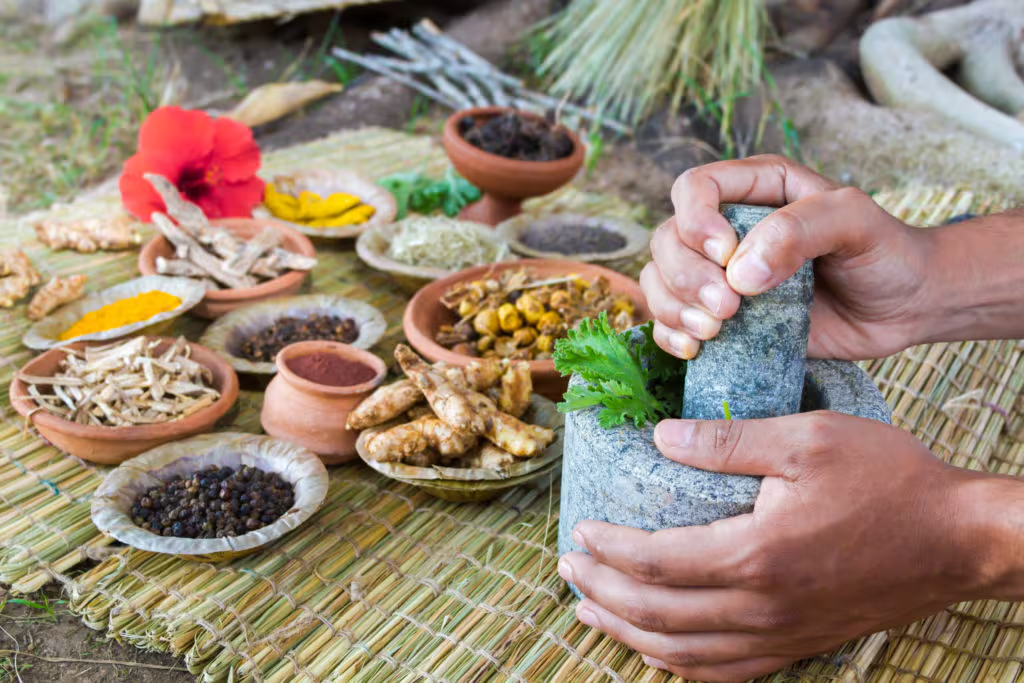Good digestion and gut health form the foundation of overall well-being.
Ayurveda, an ancient system of holistic medicine, offers time-tested remedies that not only improve digestion but also restore balance to the entire body.
In this article, we will explore 15 powerful Ayurvedic remedies to enhance digestion and support a healthy gut.
1. Start Your Day with Warm Water

One of the simplest yet effective Ayurvedic practices is starting your day with a glass of warm water.
This habit wakes up your digestive system, flushes out toxins, and prepares your stomach for the day ahead.
Adding a squeeze of lemon or a pinch of turmeric enhances its cleansing properties.
2. Incorporate Ginger into Your Diet

Ginger is a cornerstone of Ayurvedic digestion remedies.
It stimulates digestive enzymes, reduces bloating, and helps with nausea. You can:
- Chew a small piece of fresh ginger before meals.
- Make ginger tea by boiling grated ginger in water.
- Add dried ginger powder to soups and curries.
3. Try Triphala for Gut Cleansing
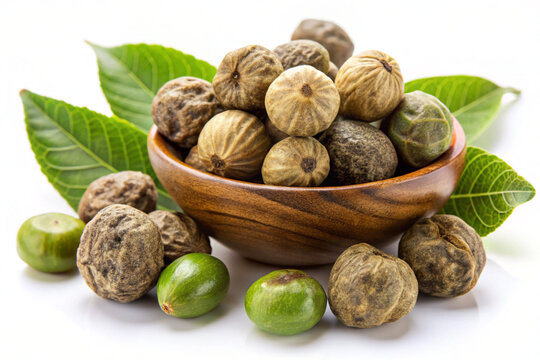
Triphala is a powerful Ayurvedic blend of three fruits: Amalaki, Bibhitaki, and Haritaki.
It promotes healthy digestion, relieves constipation, and detoxifies the gut.
Take one teaspoon of Triphala powder with warm water before bedtime for the best results.
4. Use Cumin, Coriander, and Fennel Seeds
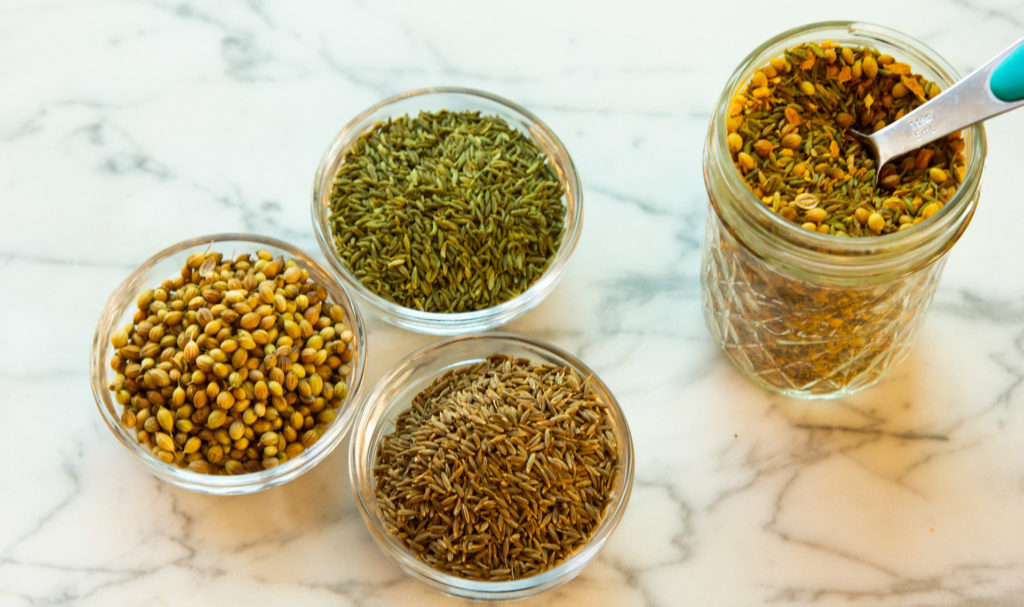
These three spices are commonly used in Ayurveda to boost digestion.
They reduce acidity, soothe the stomach, and enhance nutrient absorption.
- Roast equal parts of cumin, coriander, and fennel seeds.
- Grind them into a fine powder.
- Take half a teaspoon of this powder with warm water after meals.
5. Eat in a Calm Environment

According to Ayurveda, how you eat is as important as what you eat.
Eating in a relaxed and quiet environment improves digestion and prevents overeating.
Avoid distractions like television or work while eating and focus on chewing your food thoroughly.
6. Drink Buttermilk After Meals

Buttermilk, known as “takra” in Ayurveda, is an excellent digestive aid.
\ It contains probiotics that support gut health and aids in breaking down food.
Add a pinch of roasted cumin powder, black salt, and fresh coriander to enhance its benefits.
7. Practice Abhyanga (Self-Massage)

Regular oil massage, or Abhyanga, is recommended in Ayurveda to improve circulation and stimulate the digestive system.
Use warm sesame oil or coconut oil for the massage, focusing on the abdomen to relieve bloating and indigestion.
8. Use Asafoetida (Hing)
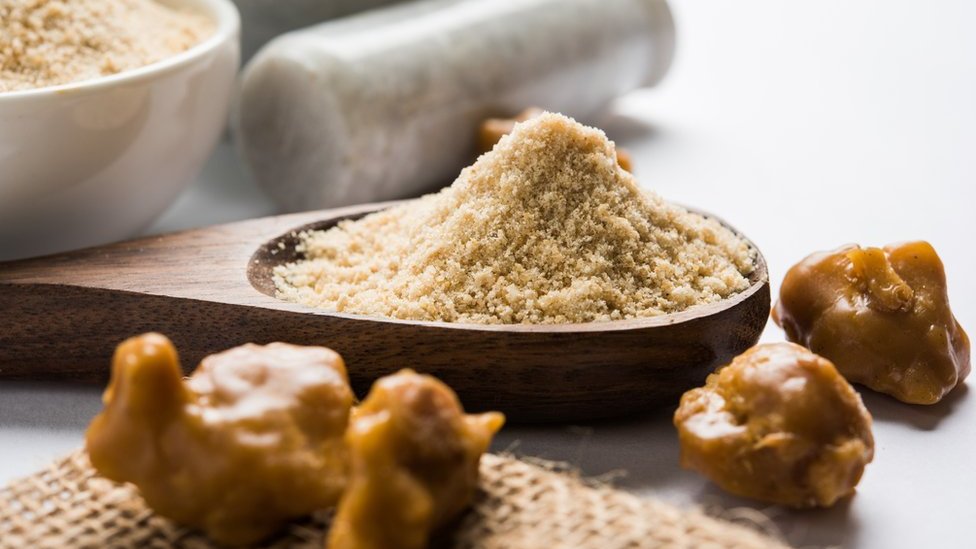
Asafoetida is a potent spice for alleviating gas, bloating, and abdominal discomfort.
Add a pinch of hing to your dals, curries, or soups to enjoy its digestive benefits. You can also mix hing with warm water and drink it after meals.
9. Follow the Principle of “Hita Bhuk, Mita Bhuk”

Ayurveda emphasizes eating the right quantity and quality of food.
“Hita Bhuk” means eating food that suits your body, while “Mita Bhuk” refers to eating in moderation. Overeating or eating incompatible foods can strain your digestive system.
10. Drink Herbal Teas

Herbal teas are excellent for soothing the digestive tract and improving gut health.
Ayurvedic teas made with peppermint, fennel, or licorice root are particularly effective.
Sipping these teas between meals can reduce indigestion and bloating.
11. Incorporate Ghee into Your Diet

Ghee, or clarified butter, is revered in Ayurveda for its digestive properties.
It lubricates the digestive tract, improves nutrient absorption, and reduces inflammation. Add a teaspoon of ghee to your cooked meals for optimal benefits.
12. Use Rock Salt
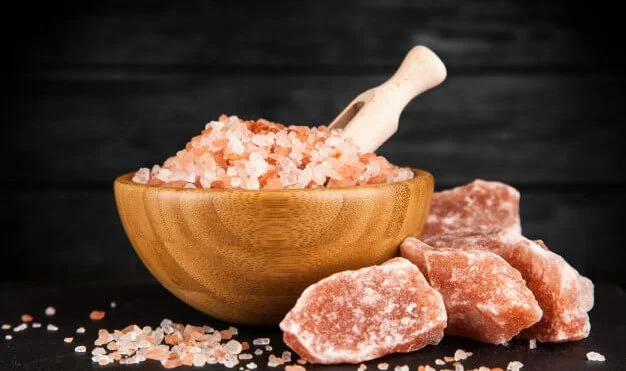
Rock salt, also known as “sendha namak,” aids digestion and balances stomach acid levels. Replace regular table salt with rock salt in your meals. It also enhances the flavor of buttermilk and herbal teas.
13. Practice Yoga for Digestion

Yoga complements Ayurvedic remedies by promoting better digestion.
Certain poses, like Vajrasana, Pavanamuktasana, and Ardha Matsyendrasana, stimulate the abdominal organs and improve gut function.
Practicing yoga regularly can alleviate digestive issues such as constipation and acid reflux.
14. Avoid Drinking Water During Meals

Ayurveda advises against drinking water while eating, as it dilutes digestive enzymes and hampers the breakdown of food.
Instead, sip small amounts of warm water if needed, and drink a full glass of water 30 minutes before or after your meal.
15. Follow a Seasonal Routine (Ritucharya)

Your diet and lifestyle should align with the seasons to maintain a balanced digestive fire (Agni). For instance:
- In summer, consume cooling foods like cucumber and coconut water.
- In winter, eat warming spices like cinnamon and cloves.
- During the rainy season, avoid heavy and oily foods to prevent sluggish digestion.
Your Path to a Healthier Gut
By incorporating these Ayurvedic remedies into your daily routine, you can strengthen your digestive system and support overall gut health.
Small, consistent changes in diet and lifestyle go a long way in ensuring a balanced and harmonious body.
FAQs About Ayurvedic Remedies for Digestion
1. Can Ayurveda cure chronic digestive issues?
Ayurveda can help manage chronic digestive issues like IBS or acid reflux by addressing the root cause. However, it’s essential to consult an Ayurvedic practitioner for personalized guidance.
2. Are Ayurvedic remedies safe for everyone?
Most Ayurvedic remedies use natural ingredients and are generally safe. However, certain herbs or spices may not suit everyone, especially pregnant women or individuals with specific medical conditions.
3. How long does it take to see results with Ayurvedic remedies?
The results vary depending on the individual and the severity of the condition. Consistency is key, and noticeable improvements are often seen within a few weeks.
4. Can I use Ayurvedic remedies alongside modern medicine?
Yes, many Ayurvedic remedies can complement modern treatments. However, consult your doctor or Ayurvedic practitioner to avoid potential interactions.
5. What is the role of diet in Ayurvedic digestion?
Ayurveda places significant emphasis on diet as it directly impacts digestion. Eating fresh, seasonal, and well-cooked foods while avoiding processed items is crucial for maintaining a healthy gut.
By combining these remedies with a balanced lifestyle, you can take control of your digestive health and pave the way for long-term well-being.
